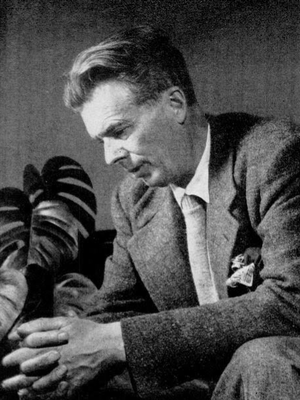Aldous Huxley

Aldous Leonard Huxley (26 July 1894 – 22 November 1963) was an English writer and a prominent member of the Huxley family. Best known for his novels including Brave New World, set in a dystopian London, The Doors of Perception, which recalls experiences when taking a psychedelic drug, and a wide-ranging output of essays, Huxley also edited the magazine Oxford Poetry, and published short stories, poetry, travel writing, film stories and scripts. He spent the later part of his life in the United States, living in Los Angeles from 1937 until his death.
Huxley was a humanist, pacifist, and satirist. He became deeply concerned that human beings might become subjugated through the sophisticated use of the mass media or mood-altering drugs, or tragically impacted by misunderstanding or the misapplication of increasingly sophisticated technology.
Huxley later became interested in spiritual subjects such as parapsychology and philosophical mysticism, in particular, Universalism. He is also well known for his use of psychedelic drugs. By the end of his life Huxley was widely acknowledged as one of the pre-eminent intellectuals of his time.
- Irony: Wrote a book about a society that keeps it's people high to enforce a dystopia, which he portrayed as a bad thing, yet he did mind altering substances himself.
- Older Than They Think: Huxley was the first person to ever portray (correctly) that alcohol can stunt development in infants in Brave New World. While the manner in which is used is inaccurate to how it works in real life (there are no exact amounts of alcohol that will cause discrete damage), he got most of the symptoms correct long before science came to the same conclusions.
- Take a Third Option: Stated later in life he wished he had written a book that offered a middle course between the two types of society he portrayed in Brave New World.